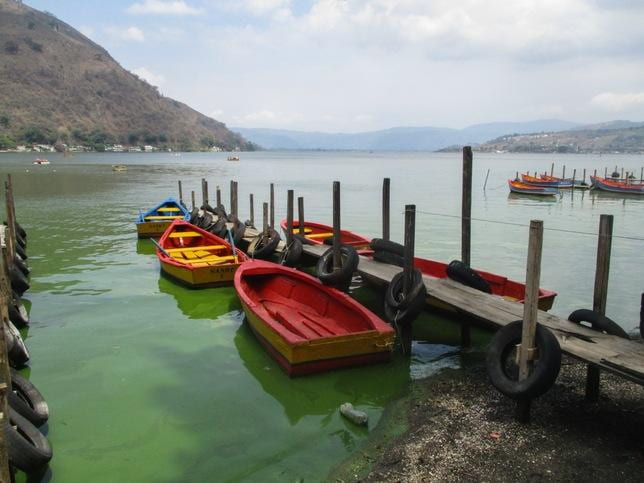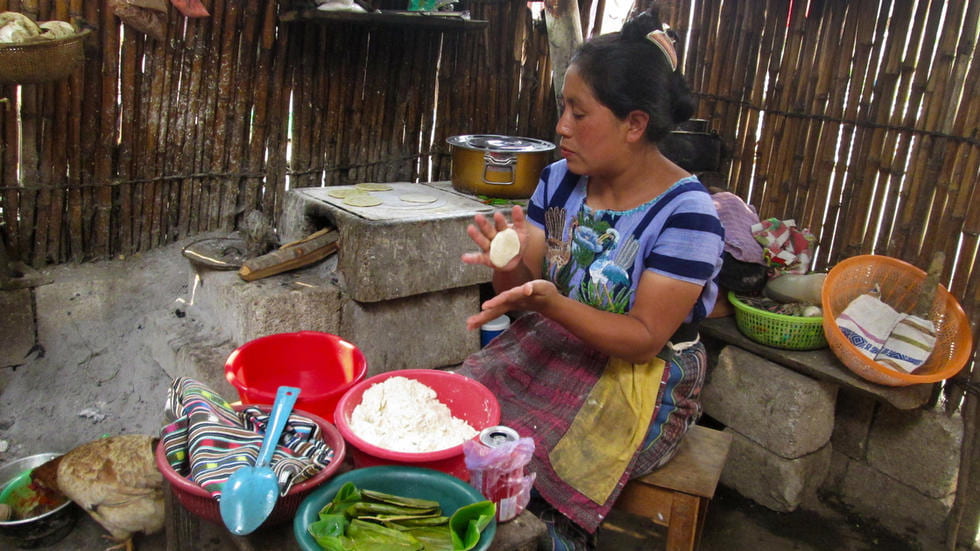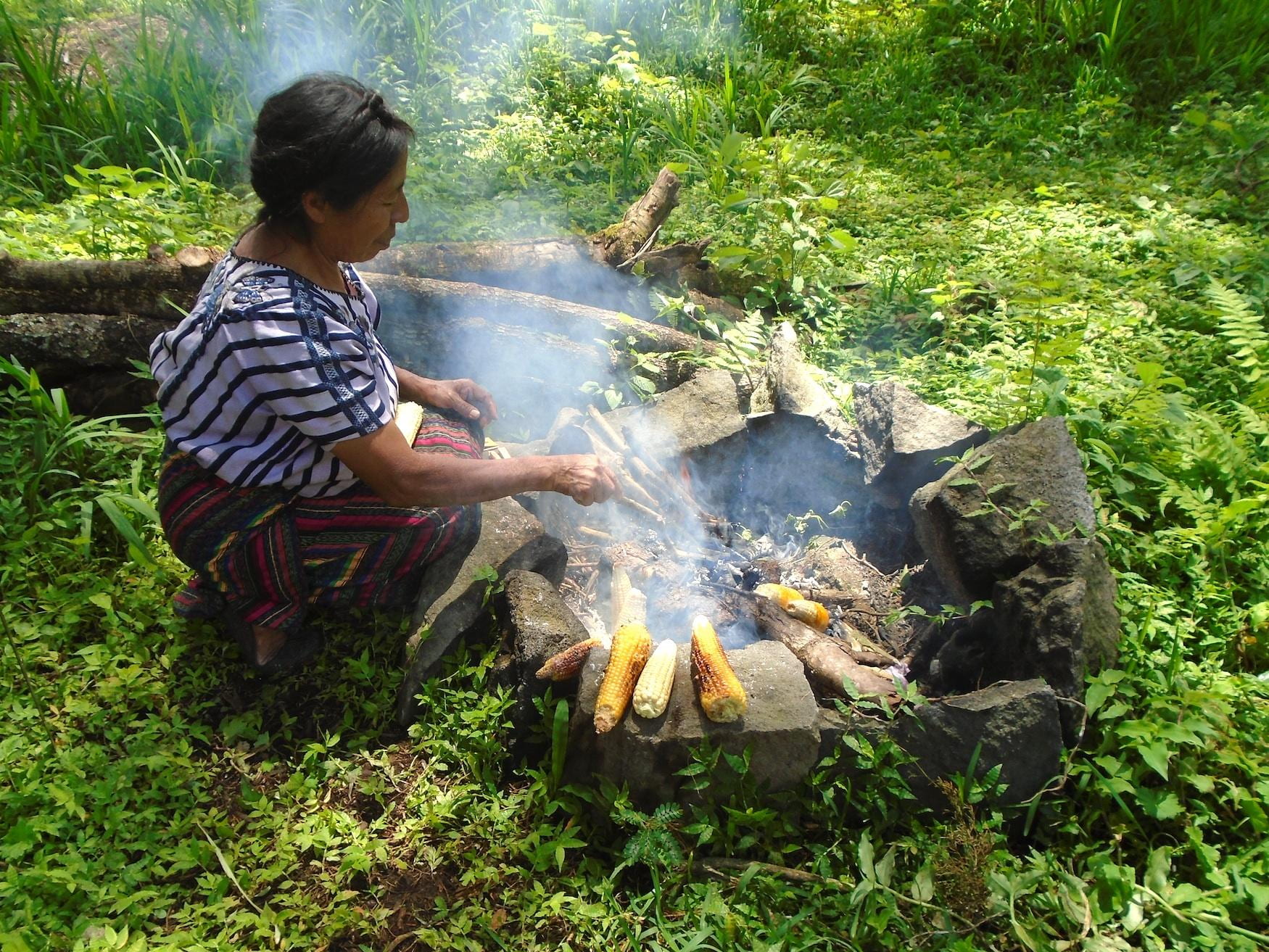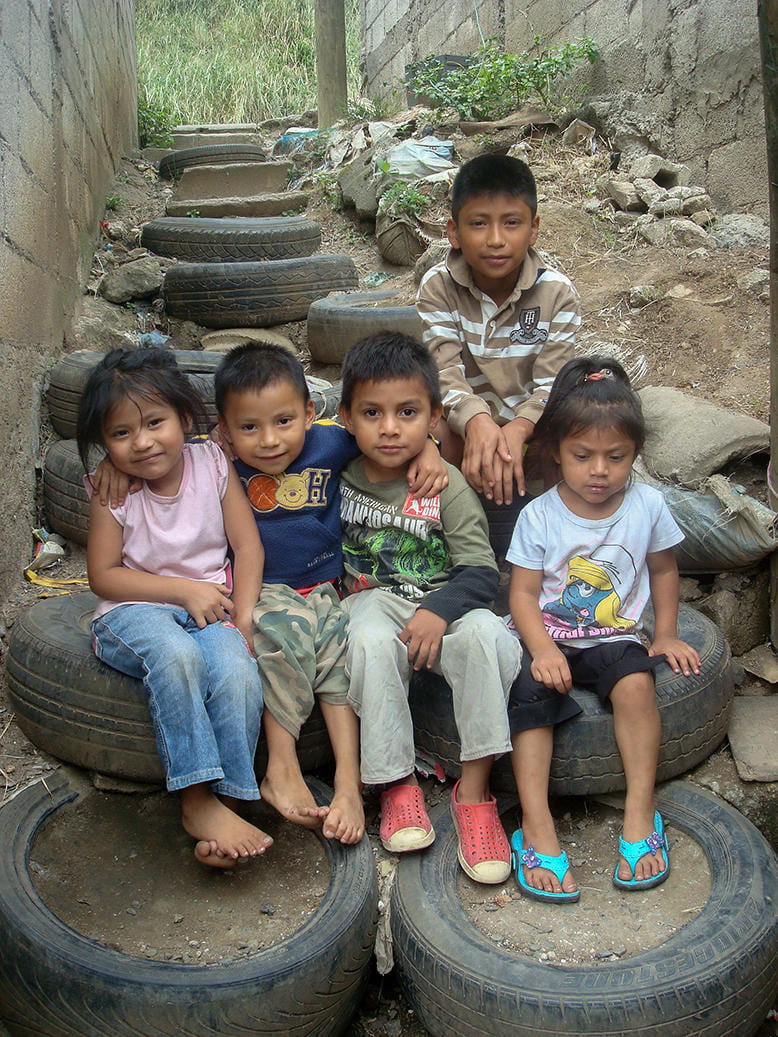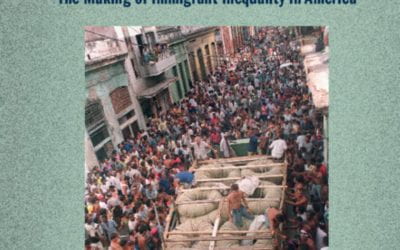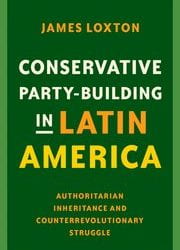Guatemala: A Snapshot of Coronavirus and Communities in Need
Little did I know three decades ago when I got a magazine assignment to photograph the community of people who lived and worked in Guatemala City’s sprawling garbage dump, that my destiny was waiting for me there. Thousands of children roamed the dump helping parents find food and recyclables to sell or looking for broken toys to play with. My camera fascinated them, and sticky fingers smudged my lens, as I handed it over for them to see their world though a tiny window.
What started as an idea to let the children have a voice and document their own environment ended up as a vocation for me—a project originally called Out of the Dump and now called Fotokids. Now, as I write this in the middle of the corona virus quarantine I consider that fervor to give back and share the opportunities the many children have had, the crowning success of the whole project.
Long ago, it was also a time of healing: working with the children healed me after covering wars as Reuters Staff Photographer for Central America during the turbulent eighties. I was ready for a different call to action. I had become weary of witnessing assassinations, massacres, sadness and cruelty. The photos I sent out were a call for people to respond. I had hoped people would do something about what they saw in the images, because as a wire service photographer I had to move quickly to cover the next breaking news story. A nebulous idea began to take form and I wondered if I could be this agent of change I was asking others to be.
Next year, 2021, will be thirtieth anniversary of Fotokids, a project that has reached over a thousand children and given educational scholarships to kids who would have otherwise never had a chance to go to school. Besides teaching them valuable vocational skills in terms of finding elusive employment, it taught them most importantly to believe in themselves.
Kids have traveled to exhibit openings of the student’s photographs in 14 countries. We have used photography to teach other children in three to six year programs: the U.N. Rights of the Child, to look at conflicts and heal wounds after Guatemala’s 36- year civil war, to teach environmental education in the jungles of Honduras, and work with the children of agricultural workers in California’s Central Valley to explore their culture and identity
Graduates have secured work in education, journalism, video editing, design, business, human rights, in international foundations and all have taught others, demonstrating their desire to give back. We have in Guatemala a staff comprised of all Fotokids graduates who hail from the same poor neighborhoods we teach in.
We work in the teeming outlying barrios of Guatemala City and the rural indigenous village of Santiago Atitlán. We struggle against gang violence and grinding poverty. It is go go go.
These last couples of weeks have been a stark contrast. We are in lockdown, and the streets are mostly empty now, at least in neighborhoods where people can afford to shelter in place. In the poorer neighborhoods, there is no such privilege. “If you don’t work you don’t eat,” as Hellen one of our staff who lives in Tierra Nueva says.
Before we had a case of coronavirus but knew it was out there, Guatemala’s newly elected president, a medical doctor, on March 13 announced that the country would not allow anyone in from China, South Korea, Iran and Europe. Temperatures were checked at the airport on incoming flights and the passengers with suspected symptoms isolated either at home or in a hospital that had been designated for quarantine.
The first case was a Guatemalan family returning from Italy where their son had won a scholarship. After the family was diagnosed, the president closed the borders to U.S. and Canadian citizens. Actual testing remains scarce. Reportedly the government has only a little more than 3,000 test kits, which means they don’t test unless they are pretty sure it will be positive, but they are expected to receive a donation of 22,500 additional kits this upcoming week.
Otherwise, for those exposed to the virus or showing symptoms there is a mandatory two-week quarantine and the government is serious about that, with health workers checking on those who came in from abroad. The early containment is considered a good sign and is promising but we all know that even with our lock-down it is just a matter of time. Like all the Fotokids staff I have been sheltering since March 15th. There is little health infrastructure here and I have read that there are 56 ventilators in country. As of today Thursday April 9th, there are 126 cases, 17 have recuperated and three deaths.
All public transportation has stopped, which means no buses. All visits to prisons and nursing homes are forbidden. All non-essential businesses are closed and that means only pharmacies, food markets, and banks are allowed to open. We are on lock-down. The country has completed a rapid refurbishing of Guatemala City’s industrial park as a hospital with international funding and with support of Guatemala’s business community. We are told to stay home. A state of siege is in place until April 12, with a curfew from 4 a.m. to 4 p.m. As of Monday it will be mandatory for people to wear facemasks when out on the street and to enter the grocery store or they face a fine.
The first day of the curfew, a Sunday, Maria José, a Fotokids staffer who lives in the dump, told us she expected to see few people about as she darted out mid-day to the market to buy food. It was business as usual in her barrio. The market bustled with people pushing past others to buy tomatoes and corn whose prices had doubled.
People in the dump joked that no one was going to go looking for curfew breakers in the warren of narrow passageways threading the barrio, so when 4 p.m. rolled around they were still out, lots of drinking and mixing. “The police came in, they must have arrested about one hundred people,” she told us. All told arrests topped 1,000. That led some to say that made Guatemala the only country where more people had been arrested than had received the coronavirus testing.
There is a dangerous income inequality divide illustrated by those who can afford to shop at the supermarket and those who have to buy at the local markets. In the supermarket, many markets are restricting how many go in at one time, you line up outside six feet apart. Shoppers must wear masks and are given hand sanitizer. I have already told you what it is like in the teeming public markets.
As income inequality becomes even more pronounced the barrios are turning in some instances to blaming foreigners and Guatemalans who have recently arrived from abroad for the spread of the pandemic. As in any country, this economic polarization is a time bomb.
At the moment the problem for most of our students is that their parents have no work. Food then is scarce and will become scarcer.
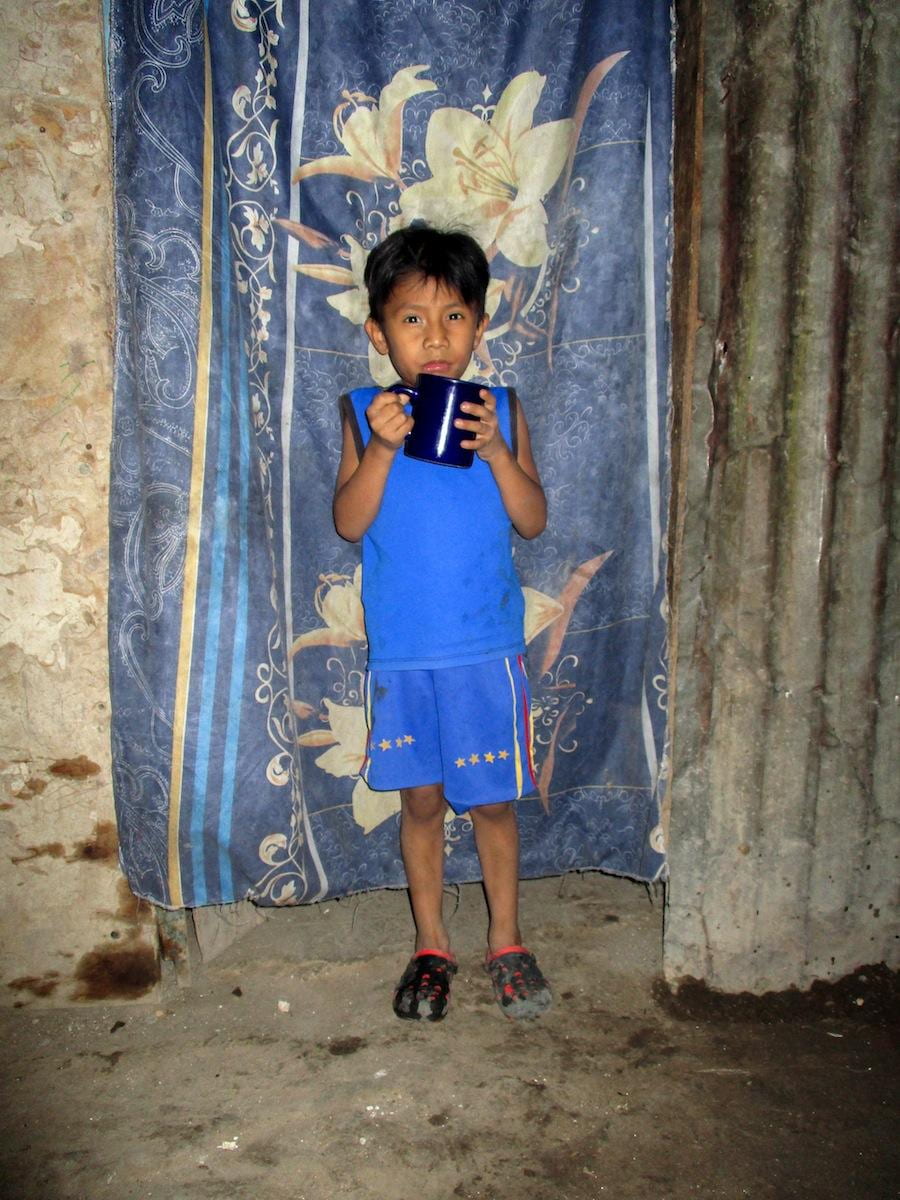
It is the children already suffering from malnutrition that will be affected the most/©Rut Coco/Fotokids 2019
The second problem, just as serious, is that there is no water in many parts of Guatemala City. This is not a new problem but a horrifying one in the context of staying clean during a pandemic. In the last 20 years, Guatemala City with no zoning laws has sprouted dozens of high rises whose many thousands of residents put a strain on the city’s water supply. Residents use water for washing machines, dishwashers and other appliances.
This is in contrast to the barrios we work in where running water if it comes at all, comes once a week and so people are forced to buy their water from water trucks. A barrel costs 12 quetzales ($1.56) and is not necessarily potable. Sometimes the water truck runs out before it can serve the next settlement down the road. To wash your hands is a luxury, as that same water has to be used for cooking, washing the baby and diapers, washing clothes and cleaning.
We canceled classes immediately on March 15th and sent the kids home with cameras to document the quarantine, a competition in place for the photo that shows the most original concept. When it is safe to have the kids come in again between Santiago Atitlán and those in the city, we will have 170 students and will offer assistance to our now independent 20 year-old Honduras environmental education project, GUARUMA.
Right now, and in the future it will be food security that is needed. An estimated 775,000 Guatemalans are vulnerable to hunger. There is as always, a high degree of malnutrition here, and the children are those that suffer most. In Tzutuhil-speaking Santiago Atitlán, we are fortunate to have a Fotokids graduate with her degree in social work, who knows the families and calls them every week to determine those with the most need. We have been able to put together food baskets for these families and the mothers come pick them up in our school’s garden. In Guatemala City each teacher makes the same calls to see how each of her students are faring. The government is giving some food relief but it is minimal and we have to figure out a way to distribute the food baskets for populations that live in disparate barrios in a way that won’t compromise the safety of our staff.
Early containment may be working. Easter week has been hard, no one can travel out of their own county, the traditional trips to visit family in the countryside if you had private transport, meant you would be locked down there all week, and all of the beaches and lakes have police guarding them turning everyone away.
The airport is closed. There were charter flights to extract the foreign nationals who wanted to go home. The flights out have ended and Mexico will soon close its border with Guatemala. I have decided to stay, my connection to the children and Fotokids has created a strong root to hold me here in Guatemala. It is my home now after so many years, but every time they’ve announced a flight out, I get nervous wondering, should I be on it.
Nancy McGirr is the founder of Fotokids, was a Reuters staff photographer covering the wars in Central America during the ’80s. She is the recipient of the Lucie Humanitarian Award. She has given a TedX talk and has produced gallery exhibitions, and conducted workshops in Sydney, London, Paris, Tokyo, New York, Tinduf Algiers, Seattle, San Francisco and elsewhere. Website: www.fotokidsoriginal.org
Related Articles
A Review of Cuban Privilege: the Making of Immigrant Inequality in America by Susan Eckstein
If anyone had any doubts that Cubans were treated exceptionally well by the United States immigration and welfare authorities, relative to other immigrant groups and even relative to …
A Review of Conservative Party-Building in Latin America: Authoritarian Inheritance and Counterrevolutionary Struggle
James Loxton’s Conservative Party-Building in Latin America: Authoritarian Inheritance and Counterrevolutionary Struggle makes very important, original contributions to the study of…
Endnote – Eyes on COVID-19
Endnote A Continuing SagaIt’s not over yet. Covid (we’ll drop the -19 going forward) is still causing deaths and serious illness in Latin America and the Caribbean, as elsewhere. One out of every four Covid deaths in the world has taken place in Latin America,...

